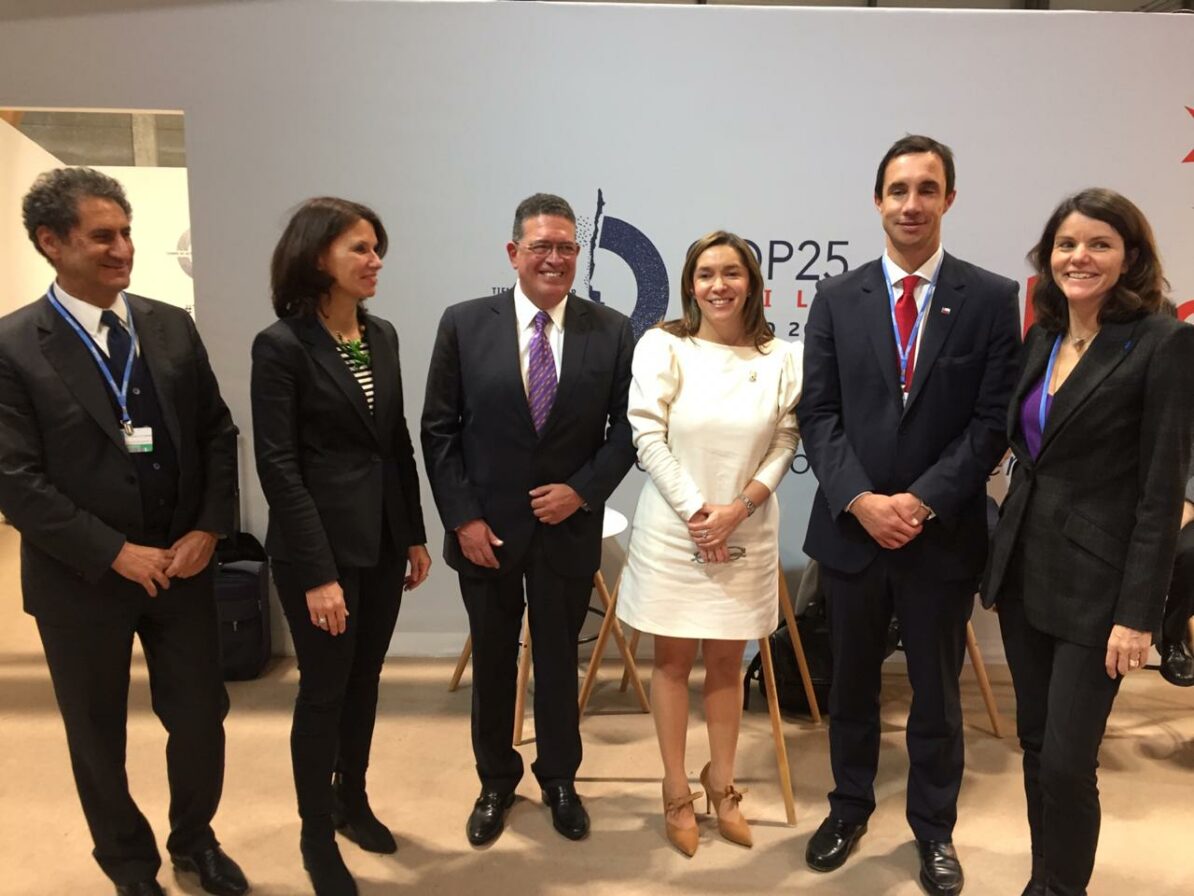During the United Nations Conference on Climate Change 2019 (COP25), which takes place in Madrid-Spain, 10 countries in Latin America and the Caribbean commit themselves to contribute to achieve the regional goal of 70% renewable energy for the year 2030. Initiative presented by Colombia where the Latin American Energy Organization (Olade) has provided data and discussion platforms to begin the preparation of a work plan for the implementation of this agreement, assuming technical coordination.
This regional goal was initially presented by the Colombian delegation during the XLIX Meeting of Ministers of Olade, held in November in Lima-Peru.
There it was explained that Latin America and the Caribbean currently has a 56% share of renewable sources, including hydroelectric power. What is intended to be achieved through this initiative is to increase this percentage to 70% with priority to non-conventional renewable energy, which is equivalent to 312 GW of installed renewable energy capacity.
“It must be noted that the commitment is regional, it is not an individual commitment. Individual goals can be differentiated understanding the conditions and participation of each of the countries and the context of each country’s matrix,” said the adviser to the Vice Ministry of Energy from Colombia, Miguel Lotero Robledo, during the XLIX Meeting of Ministers of Olade.
This initiative in which Chile, Colombia, Costa Rica, Dominican Republic, Ecuador, Guatemala, Haiti, Honduras, Paraguay and Peru participate, is open for the participation of other countries in the region, and seeks to work together to promote renewable energy , in order to support the fulfillment of the goals defined in the Paris Agreement.
This regional goal, led by Colombia, was officially launched on the Energy Day at COP25, organized by Chile, and was mainly attended by Latin American energy ministers.
The Minister of Energy of Chile, Juan Carlos Jobet, indicated that “this goal is possible to raise because we are one of the richest and most diverse regions in terms of natural resources. In Latin America and the Caribbean there are the largest reserves of water on the planet, the largest area of arable land – 576 million hectares – and 70% of all forms of existing flora and fauna. And, in addition, we are blessed with abundant unconventional energy sources.”
In this context, the Minister of Energy and Mines of Colombia, María Fernanda Suárez, said that “today we are 10 countries that are signing this agreement that we have by 2030 70% of renewable energy, currently the region has a percentage of 55%. We have committed to increase installed capacity, prioritizing non-conventional renewable energies and promoting the exchange of experiences in order to reach at least 512GW of renewable energy by 2030 of which 78GW must come from additional capacity ”.
Minister Suarez also added that the new sources are generating common challenges such as the need to make the network more flexible, develop carbon markets and move forward in the regulatory framework.
On behalf of Olade, the Director of Integration, Access and Energy Security, Medardo Cadena, said that “this agreement is very important for the region because with definable and measurable objectives, over time, they will contribute not only to combat effects of climate change but also to reduce energy poverty in the region. We must not lose sight of the fact that there are 18 million people in the region who do not have access to energy in acceptable conditions. Then, the incorporation of renewables gives us the necessary instruments to face this regional challenge.”
